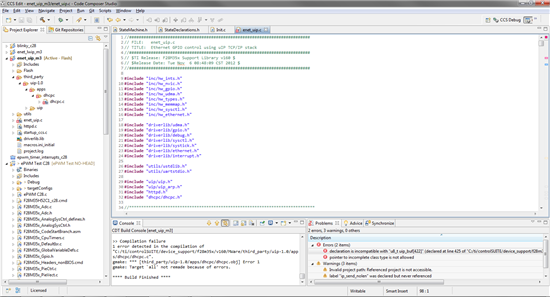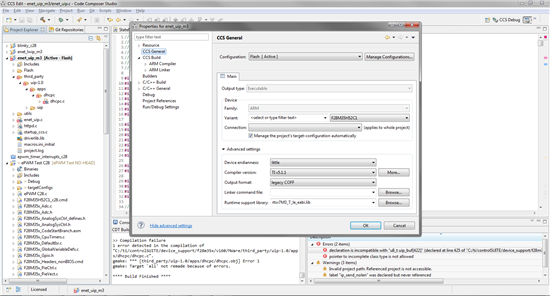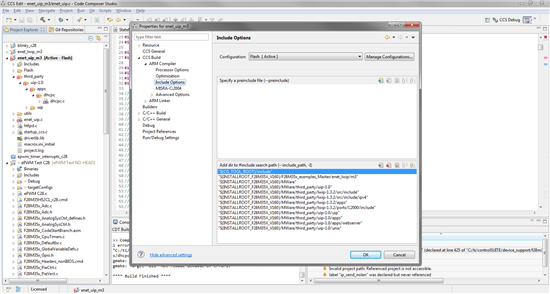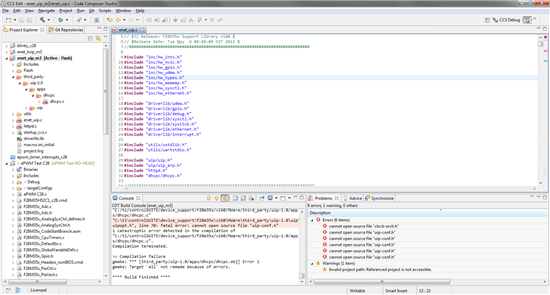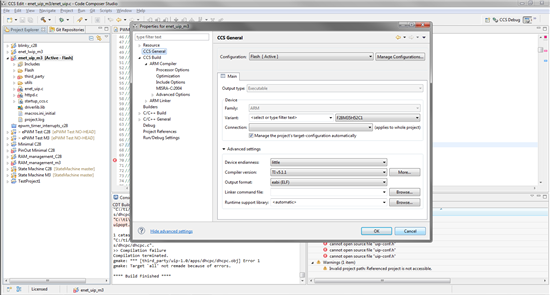I have been trying to get the enet_uip example to work on the F28M35x, but it seems broken in so many ways.
First, I imported the project (without copying). The immediate problem is that multiple includes are not found, and I had to add a bunch of path variables. Each time I added a path variable, another include problem showed up. For reference, these are the extra path variables I had to add:
"${INSTALLROOT_F28M35X_V201}/MWare/third_party/uip-1.0"
"${INSTALLROOT_F28M35X_V201}/MWare/third_party/uip-1.0/uip"
"${INSTALLROOT_F28M35X_V201}/MWare/third_party/uip-1.0/apps"
"${INSTALLROOT_F28M35X_V201}/MWare/third_party/uip-1.0/apps/webserver"
"${INSTALLROOT_F28M35X_V201}/MWare/third_party/uip-1.0/unix"
Even after all this, I get the following errors:
declaration is incompatible with "u8_t uip_buf[422]" (declared at line 425 of "C:/ti/controlSUITE/device_support/f28m35x/v201/MWare/third_party/uip-1.0/uip/uip.h") enet_uip.c /enet_uip_m3 line 99 C/C++ Problem
pointer to incomplete class type is not allowed dhcpc.c /enet_uip_m3/third_party/uip-1.0/apps/dhcpc line 364 C/C++ Problem
Has anyone gotten this to work? Any idea how to fix these problems?


